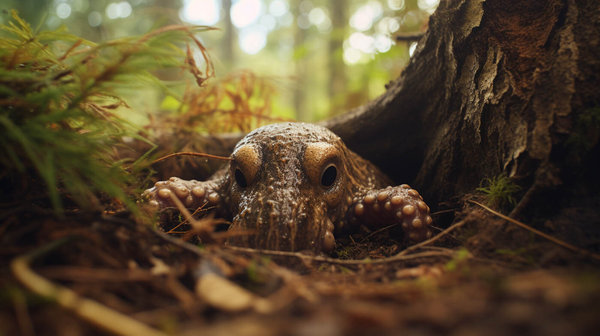
Elusive Arborial Cephalopod: The Mysterious Tree Octopus of the Boreal Forests
Scientists have been left stunned by the recent discovery of a remarkable and previously unknown species of octopus that has adapted to live in the trees of the boreal forests. The Octopus arboreus, commonly referred to as the “Tree Octopus,” has challenged our understanding of cephalopod adaptability and evolution. This extraordinary species is the first documented case of an octopus inhabiting a terrestrial, arboreal environment.
The Tree Octopus is equipped with specialized suckers that enable it to adhere to the rough bark of conifers and traverse branches with ease. Its strikingly cryptic coloration provides it with exceptional camouflage, helping to explain the difficulty in discovering and documenting the species until now. Its diet consists mainly of insects, small birds, and tree-dwelling rodents, which it captures with remarkable stealth and agility. Researchers suspect that this species represents an example of extreme niche adaptation and are eager to further investigate the Tree Octopus’s unique biology, physiology, and behavior.
Detailed analysis of the Octopus arboreus and its unprecedented habitat adaptation is currently underway and promises to shed light on the incredible flexibility and adaptability of cephalopod species, as well as the ecological wonders of the boreal forests.
